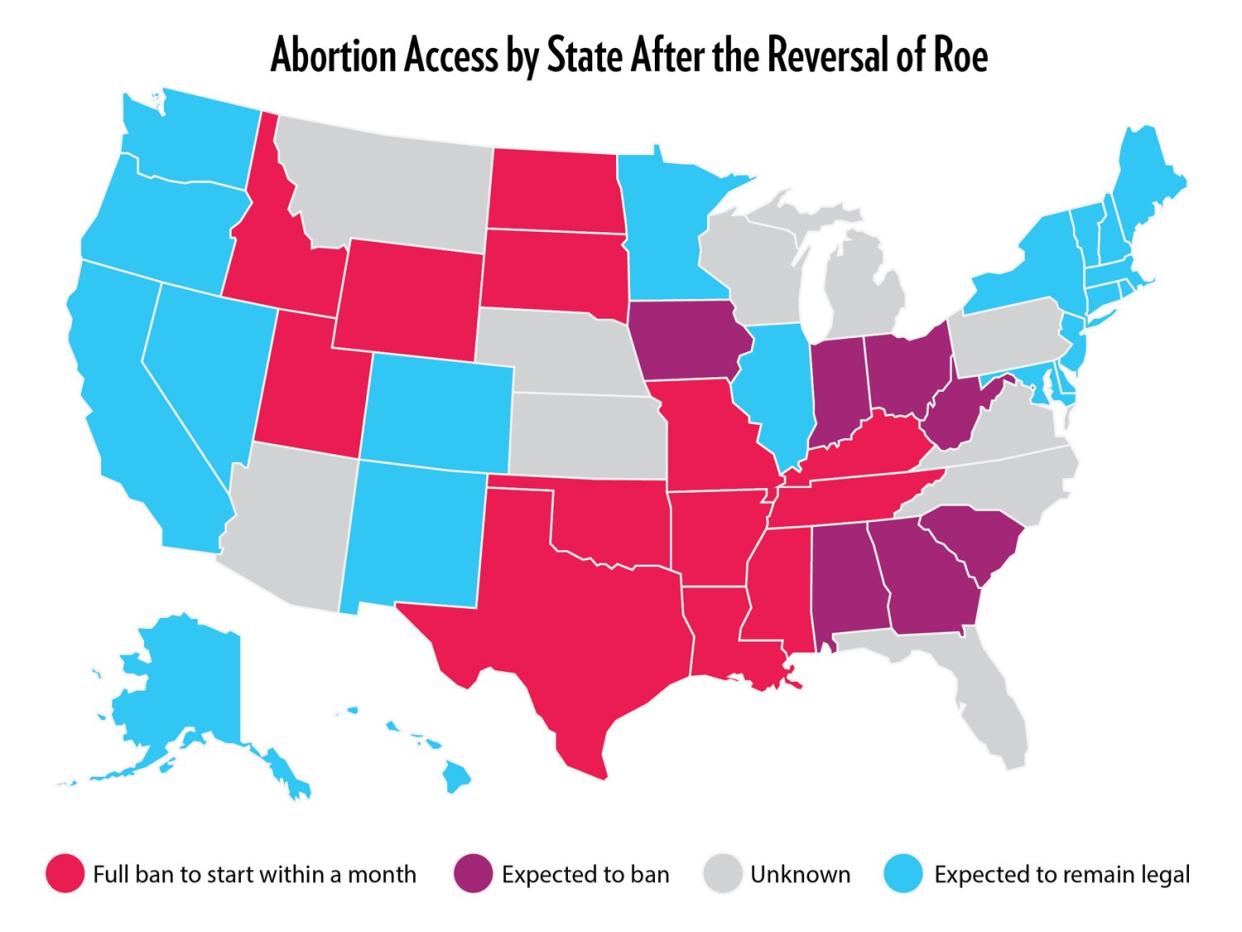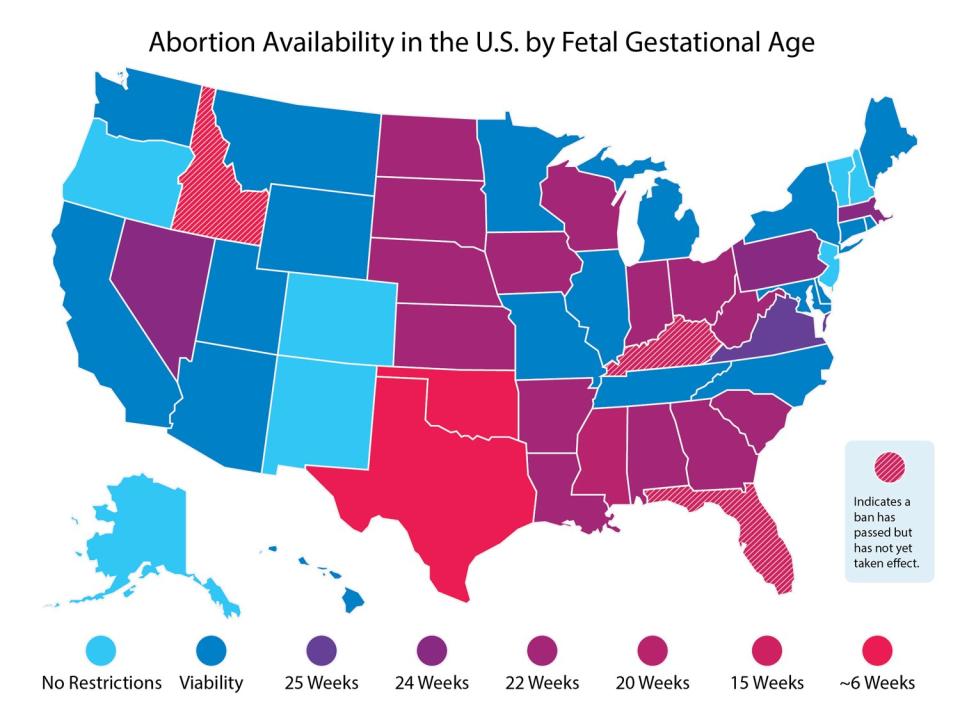See Which States Will Soon Ban Abortions Now That the Supreme Court Has Overturned Roe

Ryan Schroeder/PEOPLE
With the Supreme Court deciding to overturn the 1973 Roe v. Wade decision that constitutionally guaranteed the right to abortion, at least a dozen states will soon fully ban people from getting the procedure.
In the opinion, released June 24, Justice Samuel Alito wrote that "Roe was egregiously wrong from the start," and it "must be overruled."
He continued to say that "it is time to heed the Constitution and return the issue of abortion to the people's elected representatives."
Many conservative-led states had already put in place restrictions on who can have an abortion and at which stage of pregnancy. And now, with Roe overturned, more Americans will soon be barred from abortions. The above map shows where.
RELATED: Sen. Tina Smith Says Overturning Roe Is 'So Out of Step with Where Americans Are' on Abortion Rights
There are 13 states — Arkansas, Idaho, Kentucky, Louisiana, Mississippi, Missouri, North Dakota, Oklahoma, South Dakota, Tennessee, Texas, Utah and Wyoming — that have so-called "trigger bans" in place that will outlaw abortions within the next month, according to the Guttmacher Institute, a non-profit research institute focused on reproductive health and rights. Missouri has already gone ahead and enacted theirs earlier today.
Another five states — Alabama, Arizona, Michigan, West Virginia and Wisconsin — had state bans on abortions in place before Roe established the nationwide right to abortion in 1973, and the could all enforce them again now that the case is overturned. And three more — Georgia, Iowa, and South Carolina — have passed bans or extreme limits on abortion that could go into effect. Florida also recently passed a ban on abortions after 15 weeks of pregnancy, but it is not set to take effect until July.
As of late Friday afternoon, Ohio Attorney General Dave Yost announced that the state's Heartbeat Bill, which criminalizes all abortions after a fetal heartbeat is detected – around 6 weeks into a pregnancy, per the Cincinnati Enquirer – is now the law.
RELATED VIDEO: Supreme Court Overturns Roe v. Wade, Eliminating the Constitutional Right to Abortion
The Guttmacher Institute also identifies Indiana, Montana and Nebraska as states that are likely to restrict abortion with Roe overturned based on the political leanings of the legislators currently in office.
On the other side, 19 states have protected the right to abortion by codifying it into state law; Alaska, California, Colorado, Connecticut, Delaware, Hawaii, Illinois, Maine, Maryland, Massachusetts, Minnesota, Montana (though the Guttmacher Institute expects this to change with the current state legislature), Nevada, New Jersey, New York, Oregon, Rhode Island, Vermont and Washington. It could also become law nationwide if Congress passes legislation codifying Roe, though it appears unlikely that the Senate will agree to a bill.

Ryan Schroeder
The above map shows other state restrictions on when people can get an abortion that were put in place before Roe was overturned. Though the Roe decision had guaranteed the right to an abortion up to 23 weeks of pregnancy, 20 states had already banned the procedure before that mark.
Two states — Texas and Oklahoma — had the strictest bans in the country, outlawing abortions after more than six weeks of pregnancy, well before many people are aware they're pregnant. Idaho has passed a similar ban, but it has not yet taken effect, as indicated by the slashed lines.
Mississippi had banned abortions after 15 weeks of pregnancy. Florida and Kentucky have passed similar legislation, which were set to take effect later this summer.
RELATED: Biden Vows to Sign Bill Protecting the Right to Abortion Nationwide — Here's Where Congress Stands
Another 14 states had bans on abortions after 22 weeks of pregnancy — just slightly ahead of what Roe guaranteed.
The remaining 30 states have either bans on abortions after 24 or 25 weeks of pregnancy, after the fetus is viable for life or they have no restrictions at all.

